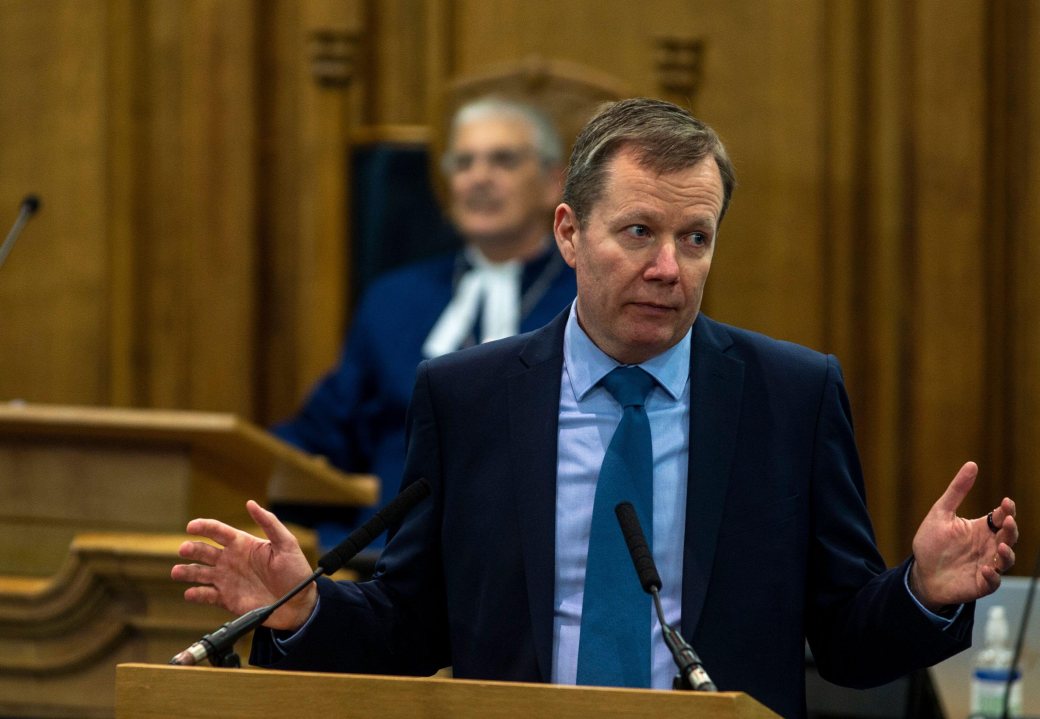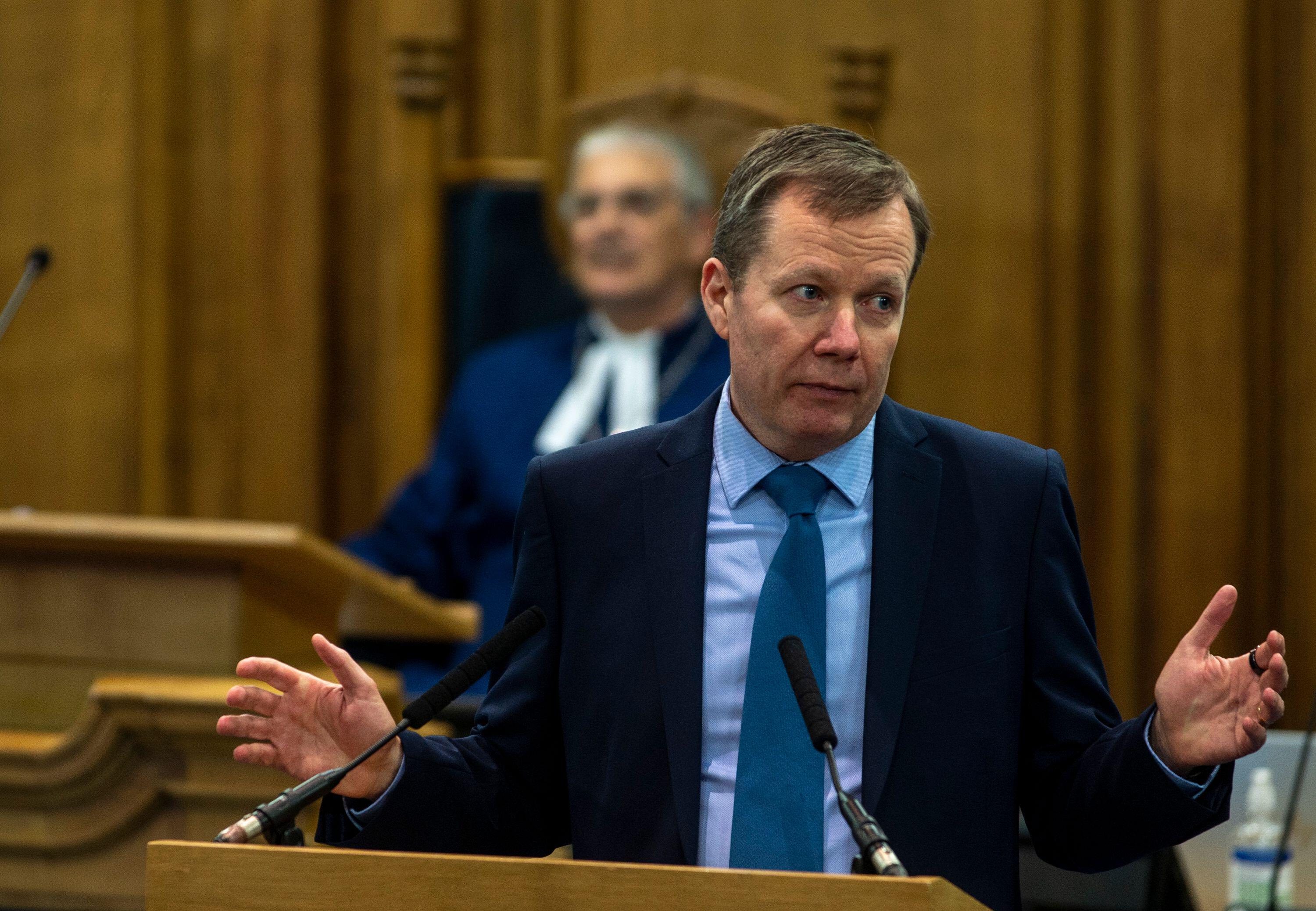You may have been forgiven for thinking that the only story in town up here in Scotland is the election of the leader of the SNP, and Scotland’s next First Minister. However, for a day at least, some of the headlines have been stolen by a man who became almost as well-known to Scots as the outgoing First Minister: Professor Jason Leitch.
‘Lockdown,’ Leitch concluded, ‘is an old fashioned approach to managing a disease that is going around the world in an aeroplane.’
Scotland’s National Clinical Director, Professor Leitch was at the side of Nicola Sturgeon during the entirety of the Covid pandemic, the country’s equivalent of Sir Patrick Vallance, the government’s Chief Scientific Adviser, and Professor Chris Whitty, the Chief Medical Officer, all rolled into one. Often he was the solo star during those lockdown press conferences – on our screens, on our radios, in our newspapers; he claimed he was used as the country’s front-facing figure during the pandemic because 50 per cent of the population disliked Sturgeon. Leitch undoubtedly proved himself to be a gifted communicator, able to combine an easy, understandable, straight style with a failure to be tripped up. Leitch appeared able to give an answer to anything; you felt that everything he said was entirely correct.
But his perceived wisdom is precisely why his statement at the weekend was so significant. Speaking to an Edinburgh church gathering about faith in the Covid era, Professor Leitch, a religious man, made some serious admissions.
‘I made some missteps,’ he confessed. ‘I don’t know if we’d do it the same way again because we have different knowledge now. I wonder if closing schools is something we’d reconsider.’
And of lockdown more generally? ‘Lockdown,’ Leitch concluded, ‘is an old fashioned approach to managing a disease that is going around the world in an aeroplane.’ If future pandemics are to come our way more often than every century – as many predict – then this may prove to be an important statement, not just for Scotland, but for the whole of the UK.
It is not fresh thinking, as such. When our schools closed in the spring of 2020, we were in the unknown. We did not know how dangerous Covid was, we did not know to whom it was dangerous, we did not know how to control it, and we did not know the impact of lockdown as a method of control. It would take a harsh observer to criticise that decision.
By January 2021, though, when schools were closed for a second time, we knew the answer to all of those questions. We knew that Covid was dangerous for the elderly, the unhealthy and the clinically vulnerable – but normally not for others. We knew that it was not dangerous for children, other than in exceptional cases. We knew that data showed teachers were not any more vulnerable than any other subset of the population, and that children were not super-carriers as had at one point been feared. We knew how to control the virus, and the vaccine had begun to be rolled out the previous month.
Perhaps most importantly, we knew the consequences of a second round of school closures. As the Royal College of Paediatrics and Child Health reported in December 2020 ahead of the closures:
Mental health organisations, charities and our own members are reporting that many young people did not cope well under lockdown and that this resulted in an increase in eating disorders, self-harm, depression and suicidal thoughts. Schools are also where at-risk children are looked out for and supported.
What is more difficult to measure is the impact, not of Covid, but of Covid’s mitigation measures. The impact of lockdown may never be measurable, but may secretly be far greater than the impact of Covid itself, particularly on children. There are children who will not yet have recovered from the social isolation and educational interruption the school closures caused, who cannot fill the hole lockdown made in their formative years.
Many children, and indeed parents, may never fully recover from it. There are children who will not reach their full academic potential, as a result of school closures stunting their academia, harming them and the nation’s future economy. And there are children who may never recover their mental health, carrying the scars of the pandemic with them for life.
Mental health difficulties were exacerbated to staggering levels during and after the Covid lockdowns – and we’re still observing the fallout even now. Data from Public Health Scotland shows there has been an almost 20 per cent increase in children and young people starting mental health treatment in Scotland in the last year, while a third of young people with mental health problems are not being seen within the Scottish government’s 18-week waiting time target.
In the Sunday Post, former first minister Jack McConnell urged the next leader of Scotland to work with all other political parties and ‘set out a strategy for educational catch up and the social and emotional support that helps these youngsters become the best adults they can possibly be’. This follows data showing that 89 per cent of nursery nurses have witnessed a rise in the number of young children struggling to talk or understand basic language since the pandemic began.
The decision to close schools for a second time was not isolated to Scotland or to Professor Leitch. However, his candid reflections should ensure that Scotland will do better if ever faced with a similar crisis again. Emergency departments at hospitals never closed during the pandemic. They were seen as being too acute, too critical. They were across the red line. Next time, schools should be right there with them.







Comments